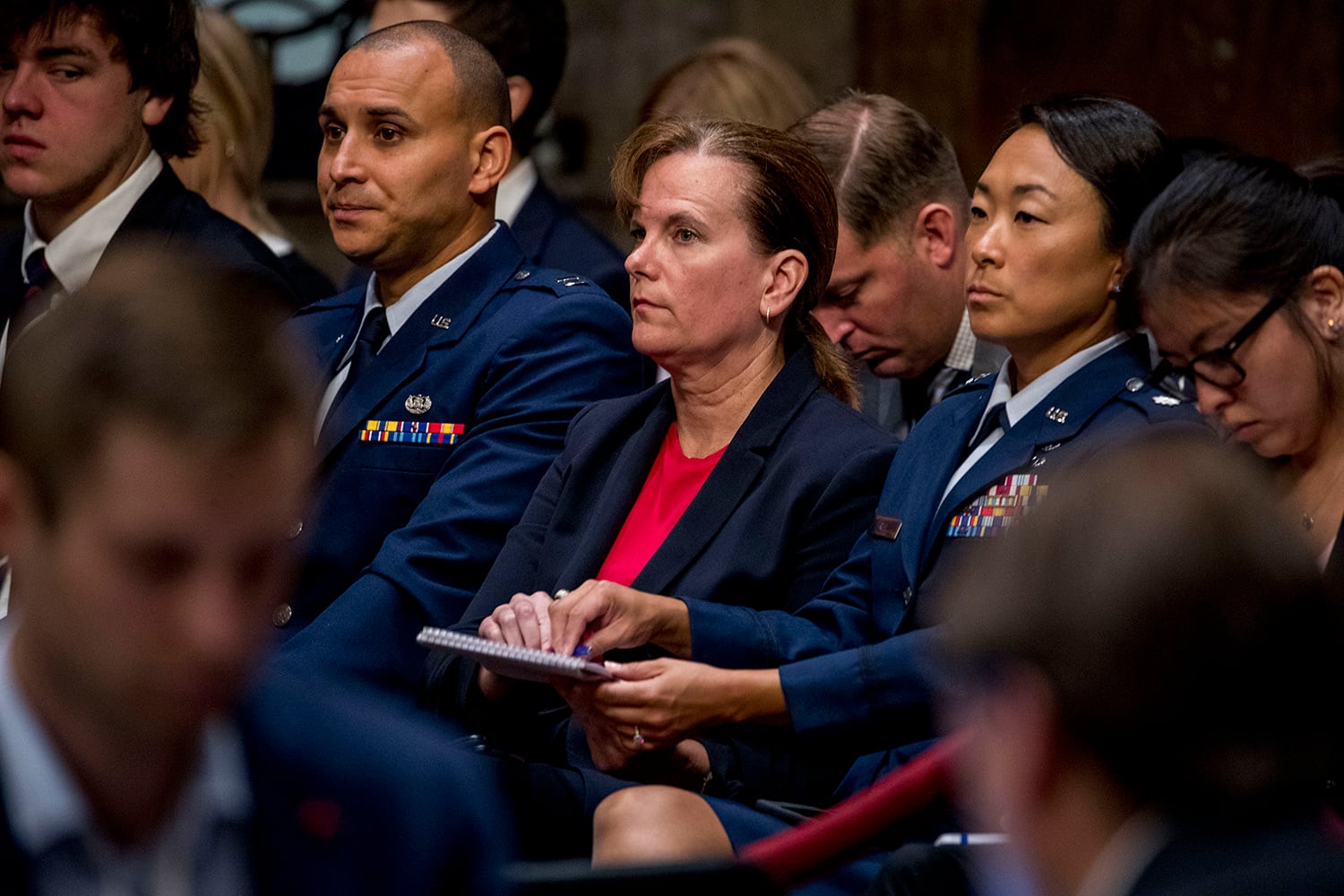An ongoing lawsuit against the former vice chairman of the Joint Chiefs of Staff caught a big break Thursday when a panel of judges ruled that the general’s former aide, who has accused him of sexual assault during her time working with him, does in fact have the right to sue him for damages.
Attorneys for the government, on behalf of now-retired Air Force Gen. John Hyten, had sought to get the suit dismissed on the basis that the Feres doctrine prohibits troops from seeking damages for injuries sustained during service, except in cases of medical malpractice.
But Feres, a 1950 Supreme Court ruling intended to block troops from suing over combat and training casualties, doesn’t apply to sexual assault because the “alleged sexual assault [could] not conceivably serve any military purpose,” a three-judge panel from the 9th U.S. Circuit Court of Appeals in San Francisco wrote in their decision.
The judges upheld a lower court’s ruling allowing retired Army Col. Kathryn Spletstoser’s lawsuit to proceed to trial. She originally filed the case in November 2019, after a previous Air Force investigation could not substantiate her claims.
Spletstoser came forward earlier that year as Hyten was being considered for the vice chairman job, alleging that he had sexually assaulted her during his time as head of U.S. Strategic Command.
Her lawsuit falls into a bit of a legal gray area, as she sued Hyten individually for the assault, rather than the military in general for any sort of negligence. Still, Justice Department lawyers have been representing Hyten, arguing that because the incident took place during their military service, it falls under their jurisdiction.
Thursday’s ruling may end up setting a precedent either way, allowing military sexual assault survivors to sue not only their assailants, but the Defense Department as well.

“The court, without specifically saying it, made it clear that they don’t think sexual assault is ever going to be incident to service,” retired Air Force Col. Don Christensen, a former chief prosecutor who is now president of service member advocacy group Protect Our Defenders, told Military Times on Thursday.
The effects could be seen locally at first, in the 9th Circuit, as a new precedent. That might also influence other circuits, but there’s a third option, wherein the Justice Department could appeal this latest ruling and send the case to the Supreme Court, which could decide once and for all whether service members can sue over sexual assault.
RELATED

Feres has at least one enemy there in Justice Clarence Thomas.
“At a minimum, we should take up this case to clarify the scope of the immunity we have created,” Thomas wrote in a 2021 dissenting opinion, after the court ruled against a former West Point cadet seeking damages for an alleged rape. “Without any statutory text to serve as a guide, lower courts are understandably confused about what counts as an injury ‘incident’ to military service.”
Thomas invoked an example in which, if one civilian and one service member are injured due to government negligence in the same incident, only the civilian would have any recourse.
“Under our precedent, if two Pentagon employees — one civilian and one a servicemember — are hit by a bus in the Pentagon parking lot and sue, it may be that only the civilian would have a chance to litigate his claim on the merits,” he wrote.
To uphold the Feres doctrine in Spletstoser v. Hyten, the Supreme Court would have to explain why it believes sexual assault is an inherent, unavoidable risk to be expected in the course of military service.
“I just can’t see them going there,” Christensen said.
Meghann Myers is the Pentagon bureau chief at Military Times. She covers operations, policy, personnel, leadership and other issues affecting service members.










